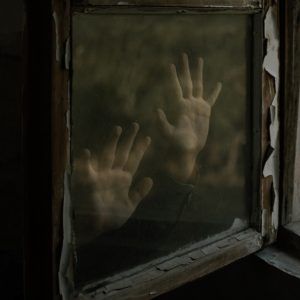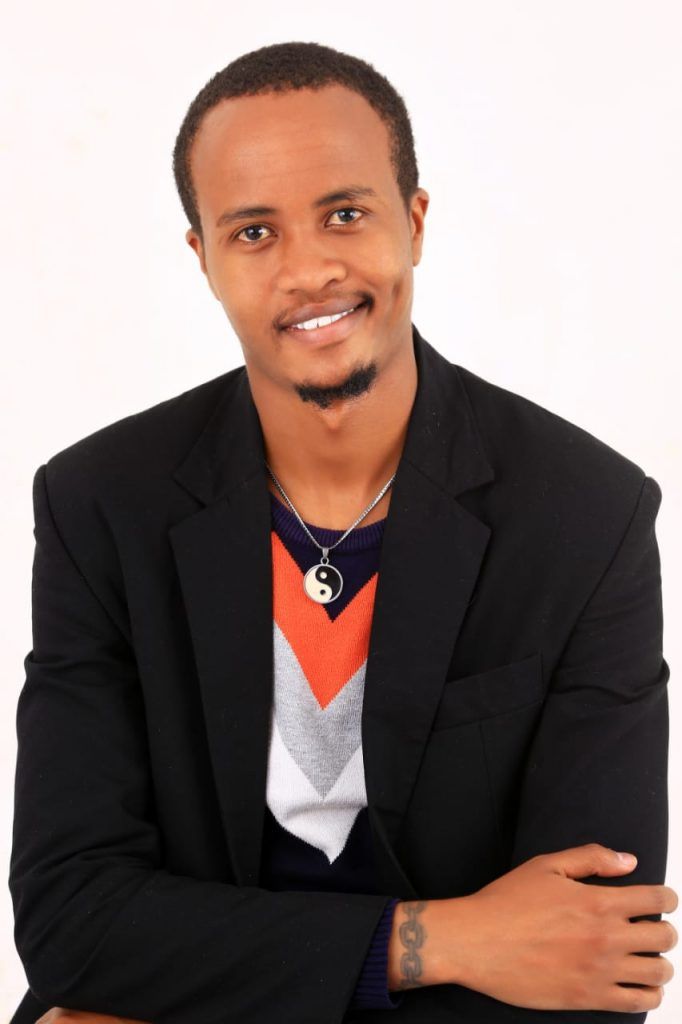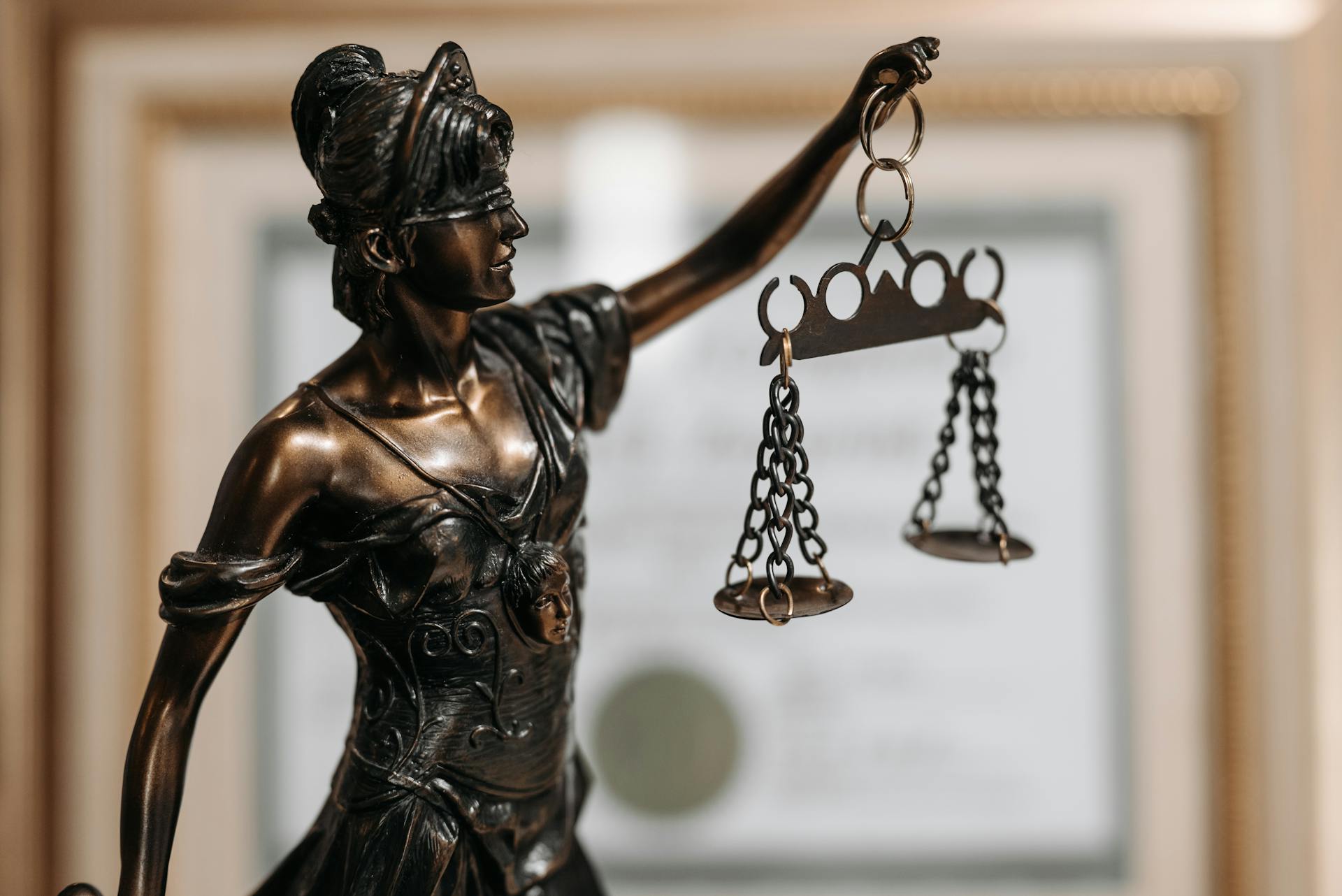
She once called me into her small room, next to the kitchen, and bolted the door soon as I got in. Although it was in the morning, the old curtains were drawn close, throwing the small space crammed with sacks of potatoes into semi-darkness. Her room served as the food store, too. At one corner stood a wooden chair by a small creaky bed, her suitcase under the bed. The smell of freshly harvested potatoes and an earthy smell; that of a farm after heavy rains, spilled into your lungs as soon as you stepped into her room.
This lady whom father had let into our home and entrusted with my wellbeing, called me into her room and closed the door. I was only ten, or eleven; give or take. I can still hear the sound of the wooden door locking. And she is saying, “Don’t ever tell your father about this. He doesn’t want you to be a man like him, but I will make you one. You promise me?”
It happened fast. At first, I had no idea what she was talking about, although something about everything wasn’t right.
“What do you mean, auntie?”
“Ssshhhh.” Her index finger went to her lips. I heard the rustling of clothes peeling off her skin. It was dark but I could see her outline, even make her facial bone structure. She bent and wrestled her ankles out of the legs of her pants, lifting one leg first, and then the other.
“Why are you undressing, auntie?”
“Let me show you something…sweet. And you’ll become a man. Don’t tell your father…don’t tell anybody. Smart boys keep secrets.”
I have memory gaps. But I remember her standing there, towering over me as I sat at the edge of the bed. She stood, naked save for her black brassiere. She reached out and gently pulled me on my feet.
“Take your clothes off. Be quick.” Her lips opened in a smile. All the while, she kept her tone low, her words sweet and convincing.
Memory gaps. I don’t know if I cried, and if I did, it was silently. My pants were now dumped on a sack of potatoes. She was…touching me. I could feel the heat of her breath warming up my navel. Memory gaps. She was now sitting on the bed, pulling me on top of her. She lowered her back, slowly, until she was lying there, facing the ceiling. And then she guided me.
“Dance, slowly. With your hips. Like this." She put her open palms on my bottom and pulled me to herself. Pumped me at herself. "Like this. Be a man...”
“Auntie…auntie…” I wanted to say something, but all that came out was this name I had learned to call her since she came home. She cooked for us. Washed our clothes. Tended the little farm behind our house. She had done this since mother left us. And today, she was doing this thing to me. I remember her noticing my tears and asking, "Aren't you feeling good?" And as the room filled with creaks of the old bed, I was ashamed. Because I felt good, and at the same time uncomfortable. For the longest time, I cried silently in my bed, every night.
She would later leave our home, I don't remember the events well, only that she packed her stuff one day and left. Since then, I don't trust nannies. Especially the sweet-speaking ones. I meet them in homes when I visit friends or relatives, and what she did to me flashes in my mind, again. And I want to grab them by their upper arm and let my words soak up the rage, "Auntie, why?"
***
The first time Aron (not his real name) opened up to me, I didn’t know what to say to him. I listened, rage crawling up my spine. Anger caressing my soul. When he finished, he said, “I never told anyone about it.” And then he laughed. Maybe to break the tension and awkward glances that passed between us.
“Does it haunt you?” I asked.
“Not really. But during my teenagehood, I was addicted to pornography. And, you know, locking up my room to, in the safety of closed doors, wrestle my manhood. Can’t even tell you how I stopped. It’s what I’d love to call…a miracle.”
Aron is now twenty-four. Boyish and charming, he is a recent graduate and a successful poultry farmer.
A week later, his story still bothered me. It planted disturbing questions in my head, and I could see this auntie of his, calling a ten-year-old into her room and denuding him of his innocence. I wonder if Aron really is unbothered or he was just playing easy to avoid going into a dark closet. How the hell could he smile through the recounting of his story?
According to an article written by The Conversation, a research paper published in 2015 estimated that between 1 in 3 girls and 1 in 5 boys had experienced some form of sexual abuse.
A document on child sexual abuse published by WHO explains that definitive signs of genital trauma are seldom seen in cases of child sexual abuse, as physical force is rarely involved. And my mind whispers to me: because the perpetrators of this nauseating act use edulcorated words, maybe... Let me show you something…sweet. And you’ll become a man. Don’t tell your father…don’t tell anybody. Smart boys keep secrets.
But the question that kept me on a leash no matter how hard I tried to break free from its grip: Aron didn’t tell on his nanny. How many others out there have gone through the same experiences and kept their mouths shut, moved on with life? And, is there a difference, psychologically, between them and the rest who did not encounter child abuse?
Steve Muthusi, a cognitive psychologist and personal development author, tells me about what he has learned as far as ACEs (Adverse Childhood Experiences ) are concerned.
He tells me that there are 10 ACEs of trauma.
"ACEs refer to any form of abuse (emotional, sexual, or physical), neglect (emotional or physical), troubling household incidences (for example witnessing one’s mother treated violently, parental separation or divorce, substance abuse, mental illness, or incarceration of a family member). These form the 10 hallmarks of a rough childhood, and can be measured 0n an ACE score."
"ACE score? What is ACE score?" I asked Steve.
"One’s ACE score represents a measure of cumulated childhood stress."
Steve then tells me that the brain of a person with a higher ACE score is different from that of a person with a lower ACE score, and research sheds light on this. Studies in Magnetic Resonance Imaging (MRI) proposed that the brain of a subject with a higher ACE score has less gray matter in parts of the brain like the prefrontal cortex which plays a role in decision-making and self-regulatory capabilities. The effect spreads to also the amygdala, sometimes referred to as the centre where humans process fear.
"Does it mean, then, that a higher ACE score means you are messed up in terms of the kind of person you become?"
"No. However, whereas one’s ACE score is not a solid predictor of future behaviour, research has indicated that ACEs negatively impact biological, emotional, and cognitive sequelae among subjects who face traumatic events during childhood. This constitutes a public health issue, both at the time of its occurrence and also the victim’s wellbeing later in life.
ACEs make one vulnerable to social, emotional, and cognitive impairments. Cognitive impairments may lead to problems in controlling one's behaviour. Like a reduced ability to self-regulate, and problem-solving deficits, which may later manifest as mental health problems, alcohol and drug abuse, risky sexual behaviours, juvenile delinquency, obesity and so on."
The issue of risky sexual behaviour reminded me of Aron and his addiction to pornography. While Aron never admitted to risky sexual behaviour, I probed more into this just to hear from Steve.
"Risky sexual behaviour might be an attempt to achieve intimacy, by those who grew up in families where there was little protection for them as children. When such intimacy is not possible, victims may turn to pornography. More dangerously, when such victims find themselves with people who cannot defend themselves (such as children), they could perpetuate the circle of abuse. And on and on, until the circle is broken, abused people may abuse people; or as is popularly said, hurt people hurt people. In which case, one should be careful when it comes to who they allow around their children, be it a boy or a girl."
I must have been holding my breath, because after Steve said this, I exhaled, long and deep. I was clearly disturbed. This time, I wanted to find out whether there was any hope of redemption, for people who experienced Adverse Childhood Experiences.
"Is there hope for someone who experienced child abuse?"
"Not everyone who experiences a rough childhood, or child abuse, ends up with marked mental health problems. Happy experiences in childhood may build resilience among victims of childhood trauma, and that way drown the impact of ACEs. Further, with the right awareness and therapy, one is able to accept, and get in a guided process to heal from such effects"
***
Whenever I think of Aron’s story and others like him, I see a world that lost its head. And I hope that we can all join forces for our children, and that people like Aron can find healing. My hope is that this little article sparks a flint and lights up conversations around the issue of child abuse. We need to do something. Speak up. There is nothing to smile about.
Why do these cases of child abuse happen, and what’s the remedy? Please do drop us a comment. We’d love to hear from you. You’re also invited to write on this topic and submit it to lesalon@qazini.com. Our editors will consider publishing it as a follow-up to this article. If you'd love to share your story about a childhood experience that affected your adulthood, please feel free to also write to us.
You may also like: The silence around violence





